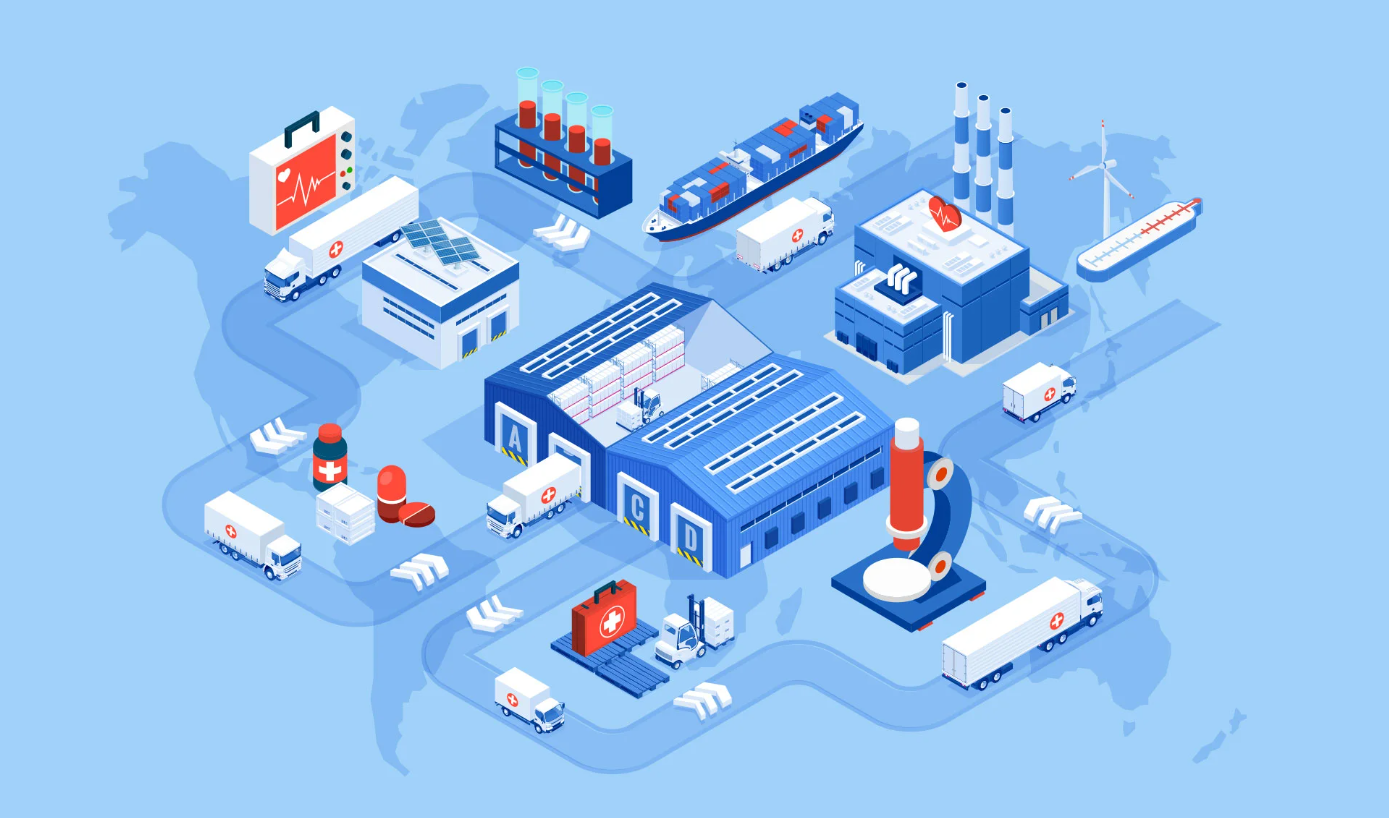The pharmaceutical industry plays a pivotal role in safeguarding public health by ensuring the timely and reliable distribution of life-saving medications worldwide. However, the complexities of the global pharmaceutical supply chain are increasing, and the industry is facing several critical challenges that demand immediate attention. This article delves into the top four critical challenges confronting pharmaceutical supply chains today.
Supply Chain Resilience
Pharmaceutical supply chains are grappling with an ever-increasing need for resilience. Events like the COVID-19 pandemic have exposed vulnerabilities in the supply chain, demonstrating the urgency of having robust contingency plans in place. Supply chain disruptions due to natural disasters, political instability, or health crises can lead to drug shortages, jeopardizing patient well-being.
Building resilience entails diversifying sources of raw materials, active pharmaceutical ingredients (APIs), and finished products. Companies must also invest in data analytics and demand forecasting tools to predict and prepare for potential disruptions. Collaborative efforts across the industry to share information and resources during crises can further bolster supply chain resilience.
Regulatory Compliance and Quality Control
The pharmaceutical industry operates under stringent regulatory frameworks designed to ensure product safety, efficacy, and quality. Compliance with these regulations is paramount, yet it poses a significant challenge for supply chains. The intricacies of regulatory requirements vary across regions, necessitating harmonization efforts to simplify compliance.
Drug Quality Control in Pharmaceutical Supply Chain is another critical aspect. Ensuring that each batch of medication meets the highest standards demands rigorous testing and monitoring throughout the supply chain. Any deviations can result in product recalls, financial losses, and reputational damage. Innovations in technology, such as blockchain and real-time monitoring, are helping companies maintain better control over the quality and authenticity of their products.
Cold Chain Management
Many pharmaceutical products, particularly vaccines and biologics, require strict temperature control throughout the supply chain. The maintenance of a cold chain is essential to preserving the efficacy of these products. This challenge becomes even more pronounced when dealing with global distribution, as variations in climate and infrastructure can affect temperature-sensitive medications.
To address this issue, pharmaceutical companies must invest in advanced cold chain logistics, temperature-monitoring devices, and packaging technologies. Ensuring the integrity of the cold chain is not only a matter of compliance but also a critical factor in patient safety and the overall success of pharmaceutical supply chains.
Counterfeiting and Supply Chain Security
Counterfeit pharmaceuticals pose a grave threat to public health and the reputation of the pharmaceutical industry. Criminal networks continuously devise sophisticated methods to infiltrate the supply chain and distribute fake medications. This challenge is exacerbated by the global nature of pharmaceutical supply chains, which involve multiple intermediaries and complex distribution networks.
To combat counterfeiting and enhance supply chain security, the industry is turning to innovative technologies like serialization, track-and-trace systems, and blockchain. These solutions – such as ARTiFACTS Verify – create transparency and traceability, making it easier to identify and remove counterfeit products from the supply chain. Collaboration among stakeholders, including governments, law enforcement, and pharmaceutical companies, is crucial in addressing this challenge effectively.
ARTiFACTS Verify offers an integrated approach to identifying substandard and falsified drugs:
- Identification of suspect medicines through on-site testing at any point in the supply chain using paper analytical device technology that is cost-effective and requires minimal training.
- Confirmation of the properties of medicines failing the initial test through further testing at specialist labs, using advanced scientifically recognized techniques, including high-performance liquid chromatography, mass spectroscopy, among others.
- Coverage of over half of WHO’s 600 Essential Medicines.
- Recording and analysis of results on a purpose-built blockchain platform which provides an immutable record of test results, including active pharmaceutical ingredients, product origin and manufacturer.
The pharmaceutical supply chain is at a crossroads, facing numerous critical challenges that demand immediate attention and innovative solutions. Supply chain resilience, regulatory compliance, cold chain management, and counterfeiting are among the top concerns that must be addressed to ensure the continued availability and safety of essential medications.
To navigate this complex landscape successfully, pharmaceutical companies need to invest in advanced technologies, strengthen collaboration across the industry, and adapt to evolving regulatory requirements. The ultimate goal is to safeguard public health by maintaining a secure, efficient, and reliable pharmaceutical supply chain that can withstand unforeseen disruptions and deliver life-saving medications to those who need them most. By tackling these challenges head-on, the pharmaceutical industry can continue to fulfill its vital mission in the years to come.



















